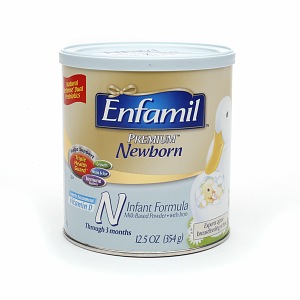Top Class Action Lawsuits
Less is More: Less truth + Less miles per gallon than advertised = More fraud. At least that’s the math on the consumer fraud class-action lawsuit filed against Hyundai Motor America, Kia Motors America and Kia Motor Company of Korea. The class action was filed after regulators announced the companies overstated the fuel economy for many vehicles they sold in the United States. Now there’s a surprise.
Hyundai Motor Corporation admitted it overstated the fuel-economy estimates after independent tests by the Environmental Protection Agency (EPA) showed a discrepancy. Busted!
The Hyundai/Kia fuel economy class action lawsuit, filed in the U.S. District Court for the District of Central California, seeks to represent all consumers who own or lease Hyundai and Kia vehicles whose EPA fuel economy ratings were less than the fuel economy rating produced by the applicable federal test in that model’s year.
According to published reports, Hyundai will lower fuel-consumption estimates on most Hyundai and Kia models produced in 2012 and 2013. It will reportedly lower estimates by as much as five miles-per-gallon for its Kia Soul Eco, and by one or two miles-per-gallon for most other models.
The automaker apologized to consumers, according to published reports, and blamed the issue on what the South Korean company called “procedural errors” in its testing, which was done by a Korean lab.
The lawsuit was filed for a Seattle woman who purchased a 2012 Hyundai Accent; an Arizona man who purchased a Hyundai Genesis sedan; an Arizona woman who purchased a Hyundai Genesis sedan; and an Illinois man who purchased a 2012 Kia Sorento, all relying on the fuel-economy numbers provided by the car manufacturer.
The lawsuit contends that Hyundai, owned by Hyundai Motor Company of Korea (KSE:005380.KS), and Kia Motors America, owned jointly by Hyundai Motor Company and Kia Motor Company of Korea (KSE:000270.KS), violated California’s Unfair Competition Law, its false advertising law and its consumer legal remedy act. The lawsuit also claims that Hyundai committed a breach of express warranty, and committed fraud and negligent misrepresentation under California Common Law, among other violations.
What’s Up 7UP? A consumer fraud class action lawsuit was filed against Dr Pepper Snapple Group Inc., the maker of 7UP, over allegations the company misleads consumers about the health benefits of an antioxidant used in some varieties of some of the 7UP soft drinks. Antioxidants in soft drinks? What time did you say the tooth fairy was coming?
According to report by the Center for Science in the Public Interest, an advocacy group for food safety and nutrition, Dr Pepper Snapple Group’s advertising and packaging suggest that the 7Up beverages contain antioxidants from blackberries, cherries, cranberries, pomegranates and raspberries, rather than added Vitamin E.
According to the National Cancer Institute, antioxidants help protect cells from damage caused by free radicals, which are unstable molecules associated with cancer.
Thursday’s lawsuit, entitled Green v. Dr Pepper Snapple Group Inc., was filed US District Court, Central District of California, No.12-09567. It seeks class-action status on behalf of purchasers nationwide of the products, a variety of financial damages, and a halt to the alleged misleading advertising.
David Green, a resident of Sherman Oaks, California, and the named plaintiff in the class action lawsuit, alleges he would not have bought the soft drinks had he known their antioxidants did not come from fruit.
7UP Cherry Antioxidant was launched in 2009, and is also available as a diet drink. Other products include 7UP Mixed Berry Antioxidant and Diet 7UP Mixed Berry Antioxidant.
Top Settlements
MoneyGram Scam Busted. This is quite incredible. The money transfer company MoneyGram has agreed to forfeit $100 million and has admitted to wire fraud settling one of the biggest money laundering cases ever brought by the Justice Department.
According to documents filed on Friday, November 9, 2012, MoneyGram admitted that it failed to maintain an effective anti-money laundering program. The scams involved MoneyGram agents tricking customers into wiring money to the agents, who posed as relatives promising large cash prizes. MoneyGram reportedly knew about this, and the victims of the fraud–numbering in the thousands–complained to MoneyGram. However, the company took no action to stop it, instead they processed the transactions for those agents.
Customers reported fraud that added up to at least $100 million, the Justice Department said, and the money from the settlement will be used to compensate the victims. I should hope so.
And on that note- I’ll see you at the bar—time for some real antioxidants! Have a great weekend!









